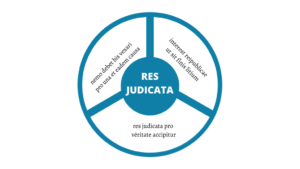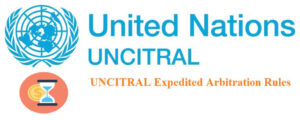Under public international law, the right to claim moral damages is enshrined in Article 31(2) of the Articles on Responsibility of States for Internationally Wrongful Acts pursuant to which the obligation of a State to make full reparation for the injury by the internationally wrongful act includes “any damage, whether material or moral”. The commentary […]
News
Res Judicata in International Arbitration
Res judicata implies that a previous and final judgment is conclusive in subsequent proceedings involving the same (i) parties, (ii) subject matter and (iii) legal grounds, which is also referred to as the “triple-identity criteria”.[1] The principle of res judicata is a general principle of law known both to international law and local law.[2] Like […]
UNCITRAL Expedited Arbitration Rules
On 9 July 2021, the United Nations Commission on International Trade Law, commonly known as UNCITRAL, adopted the UNCITRAL Expedited Arbitration Rules, which came into force on 19 September 2021 (the “(UNCITRAL) Expedited Rules”). UNCITRAL has also published a Draft Explanatory Note to the Expedited Rules (the “Explanatory Note”), containing useful comments on the application […]
Законодавча база України у сфері арбитражу
На даний момент, арбітраж є передовим інстурментом для вирішення спорів у світі. Популярність арбітражу в Україні постійно набирає обертів. Принципи міжнародного арбитражу в Україні Україна є стороною всіх міжнародних конвенцій та договорів у сфері комерційного та інвестиційного міжнародного арбітражу. Такими конвенціями є Європейська конвенція 1961 року про зовнішньоторговельний арбітраж, Нью-Йорська конвенція 1958 року про визнання […]
International Arbitration in Kazakhstan
International Arbitration in Kazakhstan is governed by the Law on Arbitration (Law No. 488-V) dated 8 April 2016 (the “Law on Arbitration”). The Law on Arbitration was amended twice since its entrance into force on 19 April 2016, the first time in March 2017 (Article 9.5) and the second time in January 2019, when significant […]
Denial of Justice in International Arbitration
Denial of justice in international arbitration concerns acts or omissions of a State’s judiciary for which a State may be internationally liable. Although the judiciary is a functionally independent body from a State’s executive and government, it is still a State’s organ. As a result, States may be held internationally liable for the acts and […]
Стокгольмский Арбитражный Суд
Арбитражный институт Торговой палаты Стокгольма (“ТПС“) шикорого известный как Стокгольмский арбитраж является арбитражный судом для решения международных споров гражданско-правового характера. С момента его основания в 1917 году, ТПС стал лидирующим центром для решения международных споров и уже более 50 лет является самостоятельным подразделением Торговой палаты Стокгольма. A. Причины обращения в ТПС В ТПС эффективно решаются […]
What Do Arbitration Lawyers Do?
It is rather common for international contracts to contain an arbitration clause providing for the institution of arbitration proceedings to resolve disputes between parties.[1] Although parties are not typically required to use lawyers in arbitrations, it is highly recommended for all but the smallest cases.[2] But, in reality, what do arbitration lawyers do? In the […]
Aceris Law Secures Award of Lost Profits for Austrian Company in LCIA Arbitration with Seat in London
Aceris Law is pleased to announce that another of its well-deserving clients has secured a large award in its favour, this time in an LCIA arbitration with its seat in London. The dispute concerned the supply of technological products to be ultimately used for the benefit of an East African State. Aceris Law’s client was […]








